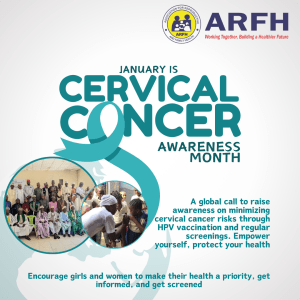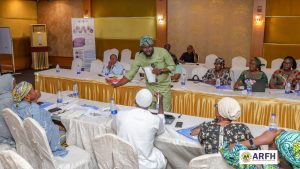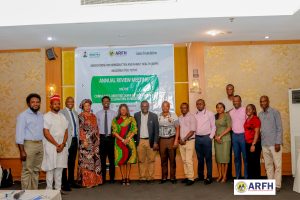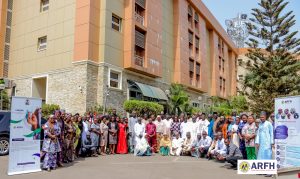
The first 1000 days of a child’s life offer a unique window of opportunity for preventing malnutrition and its consequences. Sadly, in Nigeria, not every baby gets to enjoy or survive this period of their life. According to UNICEF, Nigeria has the second highest burden of stunted children in the world with an estimated 2 million children suffering from severe acute malnutrition (SAM), but only two out of every 10 children affected are currently reached with treatment (Reference). This is further exacerbated by the outbreak of COVID-19 Pandemic. Roqueeba and her mother live in Shomolu, Lagos, the most hit state with the cases of COVID-19 pandemic in Nigeria. As a 5-month old baby girl exposed to HIV by HIV Positive Mother, Roqueeba suffered from acute malnutrition due to the social and economic situation of the parents which was worsened by COVID-19 outbreak and lock-down restrictions. Her MUAC measurement was 10.5. Roqueeba’s mother who had no source of livelihood said “she had to worry about the health of her child and her economic status”.
In line with ARFH-ICHSSA bi-directional referral strategy, Roqueeba’s mother during her HIV drug refill appointment at a local hospital was referred by the healthcare worker to USAID supported ARFH-ICHSSA 2 project for support. ARFH-ICHSSA project upon assessment of their needs provided Roqueeba’s mother with N10,000.00 emergency fund to immediately cater for her hospital bills including payment for drugs and necessary laboratory tests which marked the beginning of recovery for Roqueeba. Beyond this, the project supported her mother with additional N10,000.00 cash transfer to boost their food consumption.
Furthermore, the project leveraged support from government, community, and philanthropists to raise additional funds to the tune of N22,000.00 to provide various nutritious food items to improve the health and well-being of Roqueeba and her mother. From this support, Roqueeba’s mother started a food business that is thriving and helping them generate income to sustain themselves. Now that Roqueeba has recovered, her mother hopes to see her grow and thrive just like any other child. That’s why the ARFH-ICHSSA project exists, to give every child infected or affected by HIV a chance to survive and live a normal life while empowering their household to be resilient which will undoubtedly enhance their retention in treatment and care.




